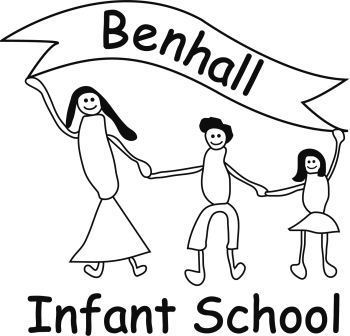Religious Education at Benhall
At Benhall Infant School, we understand our unique position as a non-faith school that feeds a Church of England School at KS2. While we do not follow the specific requirements of a church school, we are aware of our responsibility to ensure that our year 2 leavers are ready for this transition and are familiar with some of the changes they will experience as a member of a church school. We want all of our school leavers (regardless of their faith or future school place) to be informed, accepting and respectful citizens who are part of the multicultural communities they live and play in.
Key features of effective RE teaching
The principal aim of religious education is to explore what people believe and what difference it makes to how they live, so that pupils gain the knowledge, understanding and skills needed to handle questions raised by religion and belief, reflecting on their own ideas and ways of living.
The key principles of effective RE teaching are:
- It provokes challenging questions
- Is relatable to the child’s age and stage of learning and their live experiences (direct and indirect)
- Encourages children to share their beliefs
- Encourages a child’s natural curiosity
How we teach RE
- At Pre-School, children are introduced to the faiths of their peers and teachers through discussions and marking celebrations from the children’s faiths e.g. Christmas, Easter, Mothering Sunday, Eid
- At school the children participate in weekly assemblies that focus on faiths from around the globe. They continue to mark and discuss faith celebrations in the calendar year. The children are encouraged to notice similarities and differences
- Children of faith and non-faith are encouraged to share their customs, culture and beliefs during class discussions
- Visitors from all faiths are welcomed into school to share their lived experiences with the children
- The children participate in discreet RE lessons from EYFS through to year 2 which follows Gloucestershire’s agreed syllabus and Understanding Christianity
- Children in year 2 are introduced to specific symbols and vocabulary that prepares them for the transition to St Marks Junior School
The child’s progression as a theological thinker:
When I leave Benhall Infant School, at the end of KS1, I will be a theological thinker who:
- Makes sense of a range of religious and non-religious beliefs
- Understands the impact and significance of religious and non-religious beliefs
- Makes connections between religious and non-religious beliefs, concepts, practises and ideas taught
